Indian government
Trudeau accuses India of promoting violence in Canada: Reports
Canadian Prime Minister Justin Trudeau has accused the Indian government of orchestrating violence in Canada, specifically targeting Sikh separatists.
During an inquiry on foreign interference, Trudeau claimed that India violated Canada's sovereignty by targeting Sikh dissidents, calling it a "horrific mistake."
The tensions between the two countries escalated after the assassination of Hardeep Singh Nijjar, a proponent of an independent Khalistani state, in Vancouver in June 2023. Canada linked Indian agents to the killing, though India denied involvement, dismissing the allegations as politically motivated.
Canada-India ties could take a long time to recover
India and Canada expelled each other's top diplomats in response to the dispute.
Trudeau also said that Nijjar’s murder is part of a broader Indian effort to target dissidents in Canada. Despite valuing trade relations with India, Trudeau emphasized the importance of defending Canada's sovereignty.
In a related development, the U.S. has also accused India of being involved in a plot to assassinate a Sikh separatist in the United States. A recent meeting between the U.S. and India about the investigation was described as productive.
1 year ago
Rezwana Chowdhury Bannya receives Padma Shri Award
Prominent Bangladeshi singer Rezwana Chowdhury Bannya received the prestigious Padma Shri Award from the Indian government on Monday (April 22, 2024).
Indian President Droupadi Murmu presented the Padma Vibhushan, Padma Bhushan, and Padma Shri Awards for the year 2024 at the Civil Investiture Ceremony held at Rashtrapati Bhavan in New Delhi.
The Vice President of India, Prime Minister Narendra Modi, the Union Minister, and other dignitaries were present.
Read more: Sadi Mohammad laid to eternal rest at Mohammadpur
Padma Awards, one of the highest civilian awards in India, are conferred in three categories, namely, Padma Vibhushan, Padma Bhushan, and Padma Shri.The awards are given in various disciplines and fields of activity, viz., art, social work, public affairs, science and engineering, trade and industry, medicine, literature and education, sports, civil service, among others.
1 year ago
India allows onion export to Bangladesh, 5 other countries
The Indian government has decided to give an exemption for Bangladesh, as well as five other countries, from its ban export of onions, up to a certain amount.
This permission has been given on the recommendation of the Ministry of External Affairs of the country.
Read more: Onion, sugar likely to be imported from India before Ramadan: State Minister
Along with Bangladesh, India has also allowed the export of onions to Sri Lanka, Nepal, Bhutan, Bahrain, and Mauritius. However, New Delhi has not yet taken any decision on the complete withdrawal of the ban imposed on onion exports.
On Monday (February 19), the Indian newspaper Economic Times reported that India officially allowed the export of onions to Bangladesh and some other countries.
An Indian official related to this issue said that the export of onions in limited quantities to these countries has been allowed for bilateral purposes. However, the official could not tell the exact amount of onion that has been allowed to be exported.
Read more: Onion price steeper by Tk50 per kg in 3 weeks
2 years ago
Modi introduces historic bill guaranteeing third of parliament lower house seats for women
The Indian government has put forward a bill ensuring a third of seats for women in the lower house of the parliament and state assemblies.
The bill, which was initially presented in 1996, has been in the works for decades, amidst objections from various political parties, reports BBC.
Also read: Modi opponents boycott opening of new parliament building as PM reshapes India’s power corridor
Its return is likely to bolster the chances of the ruling Bharatiya Janata Party's (BJP) luck in national elections next May, it said.
The bill was introduced during the first session of the new Indian parliament, but it is still a long way from becoming law.
It would need the consent of both houses of the parliament and a majority of state legislatures, as well as the signature of the Indian president.
Also read: Silence on Manipur ethnic violence prompts no-confidence vote against Indian PM Modi
The reported proposals to raise the total number of seats might complicate implementation even further, the report said.
Indian Prime minister Narendra Modi lauded the proposed law and said it was a historic occasion for the country in his inauguration speech at the new parliament building.
"The world understands that only talking of women-led development is not enough. This is a positive step taken on that front," he told politicians as he appealed to them to support the bill.
He also took a shot at the opposition, claiming that the past Congress-led administrations had failed to pass the measure while they were in office.
Also read: Hasina, Modi agree to resolve outstanding bilateral issues through talks
"There have been discussions around women's reservations for years. We can say with pride that we have scripted history," he said.
Modi opened the new parliament building in May, but no business has been conducted there until now.
He convened a five-day special session, which began on Monday but was held in the old parliament building on the first day.
Members of the two houses gathered for a picture session in the old building on Tuesday morning, followed by a ceremony commemorating parliament's history in the Central Hall of the British-era structure.
They subsequently relocated to the new parliament, which was formally named as the Parliament House of India by the office of the lower house of parliament.
2 years ago
India considering banning govt-identified ‘fake news’ on social media
The Indian government is considering blocking news it identifies as “false” on social media.
A draft proposal of new IT regulations revealed this week stated that the Indian government would not allow social media platforms to contain any content that it deems to be incorrect, according to NDTV.
This is only the most recent in a slew of actions taken by Prime Minister Narendra Modi’s administration to control major tech companies.
Read more: UN Human Rights Council adopts 'fake news' resolution
Any information identified as “fake or fraudulent” by the Press Information Bureau (PIB), or by any other agency authorised for fact-checking by the government or “by its department in which such business is transacted”, would be prohibited according to the draft.
The government has also frequently engaged in disputes with different social media platforms when they disregarded requests for the removal of content or accounts that were allegedly propagating misinformation.
For spreading false information and endangering national security, the Indian government has blocked 104 YouTube channels, 45 videos, four Facebook accounts, three Instagram accounts, five Twitter handles and six websites
Read more: Instagram fact-check: Can a new flagging tool stop fake news?
Earlier in October, the government made the announcement that a panel would be set up to hear complaints from users about social media companies’ content moderation decisions. These businesses are already required to appoint internal grievance redress officers and executives to work with law enforcement officials.
3 years ago
Serum gets govt nod to produce Sputnik vaccine in India
The Indian government on Friday gave permission to Serum Institute to produce Russian Covid-19 jab Sputnik V in the country, a development that could also help end vaccine shortage in neighbouring Bangladesh.
The permission from India's drugs controller came two days after the country's leading vaccine maker sought its nod to manufacture the Russian Covid jab here.
"We have got preliminary approval for Sputnik V. But actual manufacturing will take several months. In the meantime, our focus remains Covishield," a spokesperson for Serum Institute told the local media.
Also read: Sputnik V production starts in India; 100 million doses to be produced annually
Serum's Covishield is being widely used in both India and Bangladesh's mega inoculation drives. Bangladesh has inked a deal with Serum to buy 30 million doses of Covishield, but a recent surge in Covid cases in India has now made the delivery of the remaining doses uncertain.
"However, if Serum manages to plug the gap in vaccine shortage in India, it will also be able to resume supply of the Covid jabs to Bangladesh. In that case, there will be no impediment from any official channel," government sources told UNB.
On Thursday, Serum said that it sought permission from India's drugs controller to produce Sputnik V in this country as well as indemnity against legal proceedings linked to the use of its vaccines here.
Also read: Sputnik V's Limited Rollout Begins In Hyderabad, Visakhapatnam Tomorrow
"SII put up an application to the Drugs Controller General of India on Wednesday, seeking permission to manufacture Sputnik V in India," a company official had said.
Another company official had told the media that all vaccine companies in India should get indemnity protection against liabilities "if foreign companies are granted the same".
Serum's demand came in wake of media reports that Prime Minister Narendra Modi's government could grant legal protection to foreign Covid vaccine makers Pfizer and Moderna.
Also read: Russian Vaccine Sputnik V: Things we should know to fight COVID-19
In a recent interview with a British daily, Serum's chief executive officer Adar Poonawalla had said that the company would increase the vaccine production capacity from the existing 2.5 billion to 3 billion doses a year within six months.
India is currently witnessing a ferocious second wave of Covid-19. At the same time, an acute shortage of Covid vaccines has seriously hampered the country's mass inoculation drive.
Prime Minister Modi rolled out the world's largest Covid vaccination drive in India on January 16. Covishield and local company Bharat Biotech's Covaxin are currently being given to citizens.
4 years ago
WhatsApp sues India over new digital rules
California-headquartered WhatsApp has taken the Indian government to court over the country's new digital rules that make it mandatory for all instant messaging apps to trace the origin of all chats sent on their platforms.
Interestingly, in January this year, the Indian government asked the instant messaging app to withdraw its new policy on information sharing with parent firm Facebook.
In its petition filed in the Delhi High Court, WhatsApp has claimed that the new digital rules are not only against the company's data-protection policy but also undermine people's right to privacy. India is WhatsApp's biggest market.
The Facebook-owned instant messaging app has also urged the court to scrap the new rules as "a violation of privacy under the Constitution of India".
"Requiring messaging apps to 'trace' chats is the equivalent of asking us to keep a fingerprint of every single message sent on WhatsApp, which would break end-to-end encryption and fundamentally undermines people's right to privacy," it said.
"We have consistently joined civil society and experts around the world in opposing requirements that would violate the privacy of our users," the social media app said in a statement issued on Wednesday.
"In the meantime, we will also continue to engage with the government of India on practical solutions aimed at keeping people safe, including responding to valid legal requests for the information available to us," a spokesperson for WhatsApp said.
Also read: India unveils WhatsApp alternative, Sandes
Last year, WhatsApp rolled out notifications informing users about an update in its 'Terms of Service' that allows the app to share data with Facebook. WhatsApp initially gave users time till February 8 to agree to the policy to continue using the service, but later deferred it.
Also read:India asks WhatsApp to withdraw new privacy policy
A couple of months later -- that is in January this year -- the Indian government asked
WhatsApp to immediately withdraw the "discriminatory" policy for this country's users in the wake of a huge backlash against the social media platform.
4 years ago
Indian government faces lockdown calls, contempt charges
India’s government faced calls for a strict lockdown to slow a devastating surge in new coronaviorus cases, and a court in New Delhi on Wednesday will decide whether to punish officials for failing to end a 2-week-old erratic supply of oxygen to overstretched hospitals.
With 382,315 new confirmed cases, India’s tally has risen to more than 20.6 million since the pandemic began. The Health Ministry on Wednesday also reported 3,780 deaths in the last 24 hours, bringing the total to 226,188. Experts believe both figures are an undercount.
Also Read:India’s virus surge damages Modi’s image of competence
Rahul Gandhi, a leader of the opposition Congress party, said this week “a lockdown is now the only option because of a complete lack of strategy by the Indian government.”
The New Delhi High Court will decide whether to press contempt charges against officials for defying its order to meet oxygen requirements of more than 40 hospitals in the capital. Those found guilty face six months in prison or a fine.
The court summoned two Home Ministry officials for Wednesday’s hearing.
“You can put your head in the sand like an ostrich, we will not. We are not going to take no for an answer,” Justices Vipin Sanghi and Rekha Palli said.
The grim reality is that hospitals are reducing the number of beds and asking patients to move elsewhere, the judges said. The court is hearing petitions filed by several hospitals and nursing homes struggling with irregular oxygen supplies.
Raghav Chaddha, a spokesman for the Aam Aadmi Party governing New Delhi, said hospitals were getting only 40% of their 700 metric tons (772 U.S. tons) requirements through the federal government, and the local government was arranging additional supplies to meet the shortfall and setting up new oxygen plants.
Also Read: India reports over 380,000 new cases, tally at 20,665,148
The latest wave of infections since April has pushed India’s health care to the brink with people begging for oxygen cylinders and hospital beds on social media and news channels.
Bodies have been piling up at cremation grounds and in graveyards with relatives waiting for hours for the last rites.
Dileep Kumar, a student, said he was asked by hospital authorities to shift his father to another hospital in Ghaziabad, a town on the outskirts of New Delhi, after it ran out of oxygen on Tuesday.
Authorities are scrambling to add more beds, sending oxygen from one corner of the country to another, and scaling up manufacturing of the few drugs effective against COVID-19.
Prime Minister Narendra Modi’s government is reluctant to impose a national lockdown for fear of the economic fallout. Modi said last month that it should be the last resort.
But nearly a dozen states have imposed curbs on their own.
The most populous state of Uttar Pradesh, with 200 million people, implemented a five-day lockdown this week. The country’s second and third most populated states of Maharashtra and Bihar are also under lockdown with varying curbs.
Also Read:‘Horrible’ weeks ahead as India’s virus catastrophe worsens
Efforts to scale up the vaccination drive are hampered by the shortage of doses. India, a country of 1.4 billion, has so far administered 160 million doses.
The global community is extending a helping hand. The United States, Britain, Germany and several other nations are rushing therapeutics, rapid virus tests and oxygen to India, along with some materials needed for India to boost its domestic production of COVID-19 vaccines.
4 years ago
Twitter suspends more India accounts amid free speech debate
Twitter said on Wednesday that it has suspended a portion of Indian accounts after it was served with several separate blocking orders by India's Ministry of Electronics and Information Technology in the last 10 days related to massive farmer protests.
5 years ago
Indian police file criminal case, post-celebrity tweets on farmer protests
Police in India Thursday filed a criminal case against what it claimed "an overseas conspiracy" to defame the country in the wake of recent tweets by global celebrities like pop star Rihanna and teen climate activist Greta Thunberg in support of the protests around the national capital by farmers against three controversial farm laws.
5 years ago

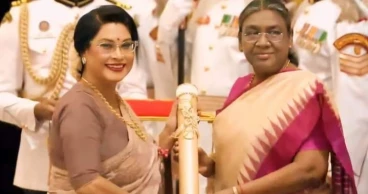
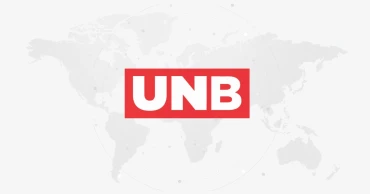
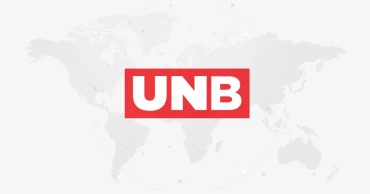
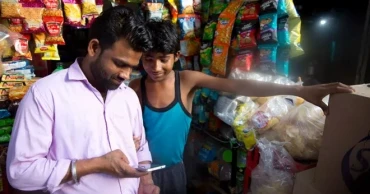
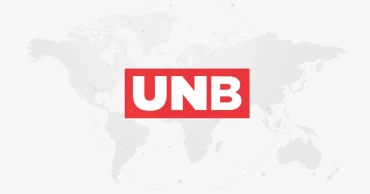
.jpg)

.jpg)
.jpg)





